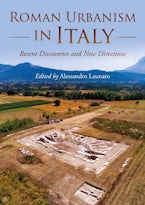This selection of twelve papers from the twelfth annual Theoretical Roman Archaeology Conference illustrates the broad range of different theoretical approaches applied to Roman archaeology today; one trend, though, is apparent: a wider engagement with interdisciplinary research, drawing theoretical ideas from many diverse fields of study, including philosophy, psychology, history of art, and consumer theory.
Seeking a material turn: The artefactuality of the Roman Empire (Andrew Gardner)
An empire in pieces: Roman archaeology and the fragment (Iain Ferris)
Restoring ontological security: Roman and native objects in Early Roman Gallaecia (Alfredo Gonzalez-Ruibal)
Transformations in meaning: Amber and glass beads across the Roman frontier (Ellen Swift)
The realm of Janus: Doorways in the Roman world (Ardle MacMahon)
Deconstructing the Frampton Pavements: Gnostic dialect in Roman Britain?(Dominic Perring)
Becoming consumers: Looking beyond wealth as an explanation for villa variability (Chris Martins)
Late Roman economic systems: Their implication in the interpretation of social organisation (Paul Johnson)
Creolisation, pidginisation and the interpretation of unique artefacts in early Roman Britain (Gillian Carr)
Breaking ground or treading water? Roman archaeology and constructive implications of the critique of meta-narratives (Stephanie Koerner)
A brief comment on the TRAC session dedicated to interdisciplinary approaches to the study of Roman women (Patricia Baker)
Sex and the city: A biocultural investigation into female health in Roman Britain (Rebecca Redfern)












